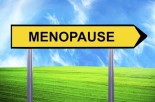The symptoms of menopause can be absolutely devastating for some women; hot flashes, painful intercourse, mood swings... the list can go on and on.
When is it time to start looking at other alternatives to ease some of these symptoms?
Author of The Target Method: A Woman’s Guide to Navigating Menopause, Dr. David Rosensweet, shares insight on hormone replacement.
He answers questions like:
Is hormone replacement safe?
When is it time to start asking my doctor about hormone replacement?
If you suffer from menopause and have been thinking about hormone replacement therapy, tune in to this insightful segment.

 Dr. Daved Rosensweeit is a nationally known lecturer and frequent presenter at The American Academy of Anti-Aging Medicine (A4M) and The American College for Advancement in Medicine (ACAM). He is a Principle Investigator for a scientific study of female hormones sponsored by Genova Diagnostics and Meridian Valley Lab. Dr. Rosensweet is author of the book The Target Method: A Woman’s Guide to Navigating Menopause. He is also Organizer of a National Summit Committee on the Treatment of Women in Menopause with Bio-identical Hormones. He was formerly on the Board of Directors of the American College of Advancement in Medicine and the Chairman of its Endocrine Committee.
Dr. Daved Rosensweeit is a nationally known lecturer and frequent presenter at The American Academy of Anti-Aging Medicine (A4M) and The American College for Advancement in Medicine (ACAM). He is a Principle Investigator for a scientific study of female hormones sponsored by Genova Diagnostics and Meridian Valley Lab. Dr. Rosensweet is author of the book The Target Method: A Woman’s Guide to Navigating Menopause. He is also Organizer of a National Summit Committee on the Treatment of Women in Menopause with Bio-identical Hormones. He was formerly on the Board of Directors of the American College of Advancement in Medicine and the Chairman of its Endocrine Committee.